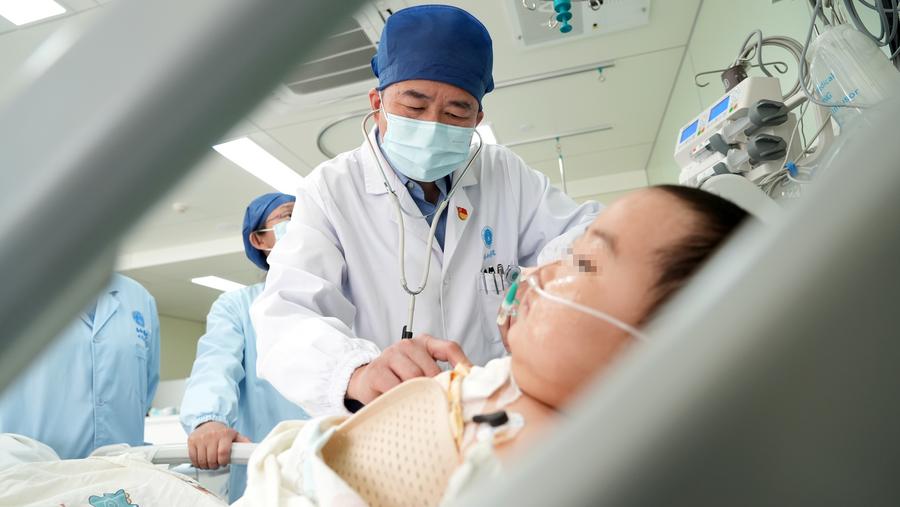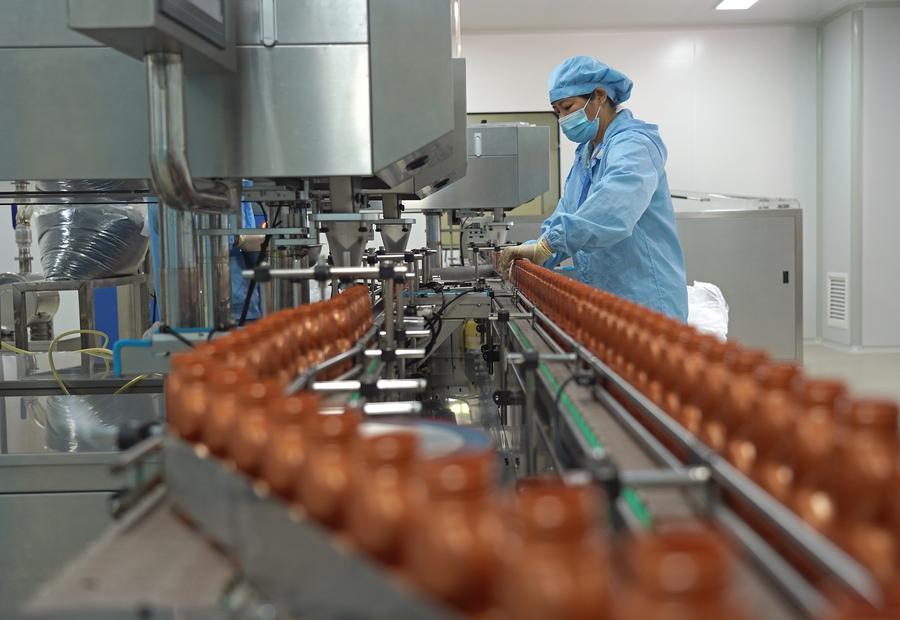
China has built the world's largest disease prevention and control system, Health Minister Lei Haichao said on Thursday.
Lei said the nation's disease control system covers the four levels of central government, provinces, cities and counties or districts.
The health literacy of Chinese residents grew from 23.2 percent in 2020 to 31.9 percent in 2024, he said during a news conference held by the State Council Information Office.
The nation has also implemented a nationwide free immunization program that protects against 15 diseases and the premature mortality rate for key chronic diseases has been successfully reined in, he said.
The incidence rates for tuberculosis, hepatitis B, HIV/AIDS and other contagious diseases have been declining continuously or maintained at a low level.
In addition, China has established the world's largest healthcare system, with a focus on expanding access to quality healthcare services, according to Lei.
By the end of last year, the number of medical and healthcare institutions had reached 1.09 million and over 90 percent of residents are now able to reach the nearest healthcare provider within 15 minutes, he said.

HPV vaccination, new drug development
Also on Thursday, the National Health Commission announced China plans to roll out human papillomavirus (HPV) vaccination services for females of eligible age and incorporate the vaccine into the national immunization program this year.
Meanwhile, Guo Yanhong, deputy head of the commission, said China has risen to the world's second place in terms of new drug development, with domestic drugs under research accounting for over a fifth of the global total.
In recent years, a series of innovative medicines developed by China - including some anti-cancer drugs - have been approved for market launch, filling gaps in the country's portfolio of homegrown treatments, Guo said.
Guo added that one of the new drugs, Zanubrutinib, has received approval for use in many other countries.
The official also highlighted the country's advances in high-end medical device development.
Breakthroughs include a homegrown photon-counting CT scanner with up to triple the resolution of traditional machines, faster scans, and lower radiation exposure. Domestically developed orthopedic and soft-tissue surgical robots are improving precision and reducing trauma, while ECMO machines, artificial hearts, and proton and heavy-ion therapy systems have also been independently developed and deployed in hospitals.
These innovations are helping more patients "access, afford, and benefit from" cutting-edge, domestically produced medical equipment, Guo said.


